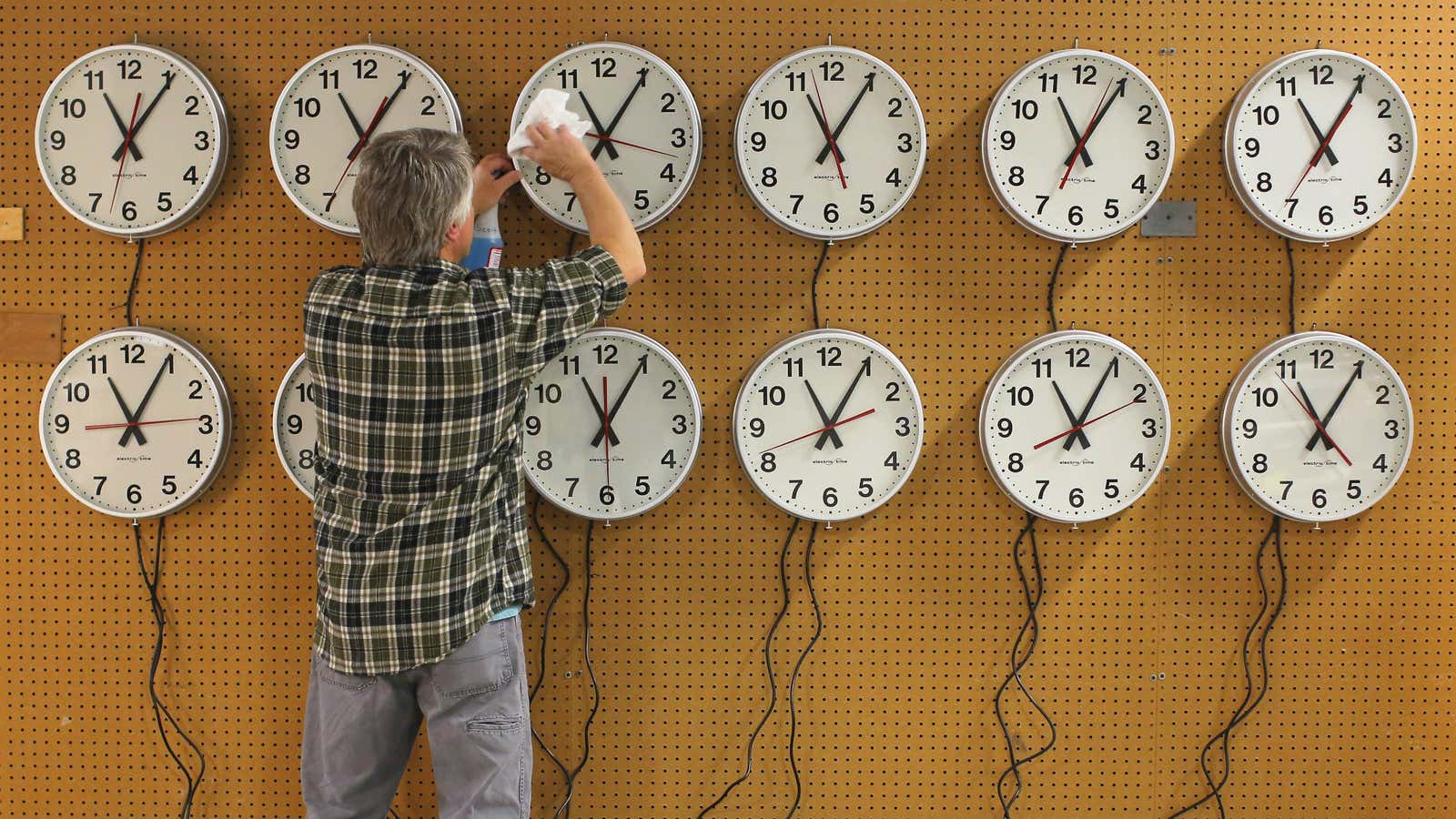This post has been updated.
A California lawmaker has introduced a bill to unshackle the Golden State from the horological chains of Daylight Saving Time.
If voters approve the motion, which first requires that the legislature approve a constitutional amendment, California will join Hawaii and Arizona (excluding the Navajo Nation) as the rogue states that do not recognize the annual US practice of turning clocks an hour forward in the spring and an hour backward in the fall.
Assemblyman Kansen Chu, a Democrat from San Jose, brought the bill forward at the suggestion of local constituents, Chu’s spokesperson Robert Mason told Quartz. Except in the states noted above, federal law mandates clock changes on the first Sunday in November and the second Sunday in March. (Clocks jump an hour this coming Sunday, March 13.)
Daylight saving time is observed in about 70 countries worldwide, but its benefits are the subject of much debate. While studies in the 1970s argued that it reduced energy usage, it’s no longer clear that’s the case. A 2011 study in Indiana found that electricity use rose in the state as a result of daylight saving.
And the widely-repeated myth that it was introduced to benefit agriculture is false. Farmers led the opposition to DST in California and other states when it was first introduced.
California adopted Daylight Saving Time in 1949. According to the bill’s text, the seasonal time change reduced traffic accidents, gave part-time farmers and suburban commuters an extra hour of daylight after work, and “tends to reduce juvenile delinquency,” according to “religious and women’s groups.”
Not everyone agreed.
“If people in the cities want Daylight Savings of one hour, the businessmen and industries should decide to open their stores, offices and plants an hour earlier and close an hour earlier,” Associated Farmers of California chief Charles E. Gibbs noted presciently in the formal opposition.
Gibbs also noted the change’s ill effects on the motion picture industry—cinema attendance dropped in daylight hours—and “the housewife,” as “the feeding schedule of her children would become disarranged.”
This post has been updated to expand on the legislative path of the bill.
